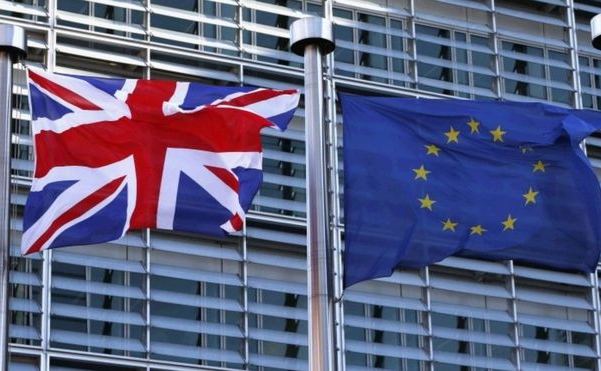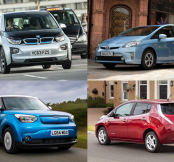Impact of Brexit on the Future of Electric Cars and Plug-in Cars in the UK
2016-07-05 15:04:07
Just last week, the world woke up to the shocking news that some people hoped that they would never get to face: Britain has exited the European Union. As everyone continues to wonder what the effects of this exit means for Britain and its trading partners, experts have already aired their professional views on this subject. The auto industry has not been left in the struggles that have come with Leave vote in the recent concluded Brexit referendum. To begin with, the motor industry in the UK boasts of having over 800,000 jobs, meaning that Brexit has touched both positively and negatively the nation’s drivers, industry players and auto enthusiasts. Below is a rundown of how the results of the referendum is already been felt in different sectors of the auto industry.
Understanding the UK Motor Industry
The Society of Motor Manufacturers and Traders in the UK, confirms that the auto industry in this country accounts for over £69.5 billion in terms of yearly turnover. £15.5 billion of this this turnover is directly added to the UK’s economy on an annual basis. In addition, the auto manufacturers account for more than 160,000 people, while an additional 800,000 people across the wider auto industry. More than 30 auto manufactures based in the UK account for the production of more than 70 car models; diesel, petrol and electric powered vehicles.
For example, in 2015 alone, UK’s auto industry rolled out over 1.5 million cars. However, in a recent survey carried by the auto industry’s representatives, 77% of players in this industry voted to remain in the EU. This means that Brexit has a direct impact on the auto industry considering that 11.8% of total exports made by the UK includes units from this industry.
Concerns Raised By Electric Vehicle Manufacturers
Most carmakers were outspoken about the Leave vote. For example, Nissan, UK’s second-biggest car producer had its representatives sue Leave campaigners for using its logo in the Brexit campaign. Recall that Nissan, the maker of the Nissan Leaf EV had long established a car plant in Sunderland that had seen the production of over 400,000 units, annually. The car facility boasts of over 7,000 employees under them but most of the people Sunderland voted to Leave.
BMW had long seen the impact of the Leave vote, saying that auto industry players should brace themselves for tough times ahead. According to Dr. Ian Robertson, BMW’s global sales and marketing director, the firm had already cushioned from the results of the referendum itself and was ready to move on with the Brexit, since UK was its fourth largest consumer of its electric powertrains.
Vauxhall, the British car maker and producer of the Vauxhall Ampera hatchback powertrain, had most of its employees take the Remain vote.
A Speculation on the Effects of Brexit to the Global Electric Car Sector
Britain happens to be the biggest exporter of automotive parts to the EU. Auto parts are exempt from taxes and other World Trade Organisations accords. EU members are free to discriminate against this autos with tariffs. European exporters, for example Germany are worried about their sales to British customers. The British buy a lot of German cars. In addition, most Britons are not sure about the impact of the dropping Sterling pound will have when it comes to importing their favourite Tesla electric power trains.
But this means that some of the U.K auto players may not be entirely affected negatively by Brexit. Honda had a manufacturing plant in Swindon, Toyota in Burnaston and Deeside, Minis manufactured in Oxford and Nissan has maintained its Sunderland factory. All this auto makers are making efforts to come up with electric powertrains in the next few years. Remember that UK has to first invoke the Article 50 so that the exit from the EU officially begins. The exit could take at least 2 years to be complete meaning that some of this automakers can produce the EV and still sell them in this time period.
Positive Effects
If the UK desires to preserve the free trade agreements it has with E.U, there are three major impacts it could have on the future if EVs;
According to BMW representatives, the relevant conditions for supplying the UK market with vehicles will have to be re-negotiated which could mean better prices for the UK consumer.
Also Toyota chips in to say that the level of competitiveness in the whole auto industry will be on another level in order to secure sustainable growth together with the UK automotive industry and other stakeholders. This means that EV's will be of top quality in the first place.
If some electric car manufacturers decided to relocate to other countries, it could be the start of upcoming EV innovators like Britain’s Dyson get a gain ground as a new entrant to Britain’s EV market.
Negative Effects
There exists a lot of uncertainty on UK’s willingness to invoke Article 50 and the dropping value of the pound. However, some of the looming negative effects to the EV sector include;
If the EU imposes a tariff on all UK exports, the UK will also reciprocate and this only means that it will be more expensive to buy a German electric powertrain for Britons. In addition to this, any other European made powertrain will make British consumers dig more deeply into their pockets in order to purchase it.
If the UK rescinds the free trade agreements, this means that non-British EV makers, such as Nissan, may have to brace themselves for tougher times ahead, in terms of cutting down on its non-EU labor force because of new work permit regulations which will negatively affect the production of the Leaf. Other EV manufacturers, may decide to relocate their operations to countries like France, signifying the start of the downfall of UK’s auto industry.
With the falling value of the Sterling pound, the cost of non-Europe EV units such as Tesla’s Model 3, S and X could significantly shoot up. A topic raised by “Lokolo”, a Briton and a member of the Tesla Motor Club, gave some good points on the current situation of buying a Tesla powertrain. Going for the EV now will make its enthusiasts pay for more because of the current uncertainty in UK’s economy. However, it is still unknown if Tesla will go with its initial price of £30,000 for a Model 3 after the pre-Brexit highs come down in the long run.
One thing is for sure that we will keep a close eye on the out come and update you when needed.
Reported By
SteveyG
Guest Editor









